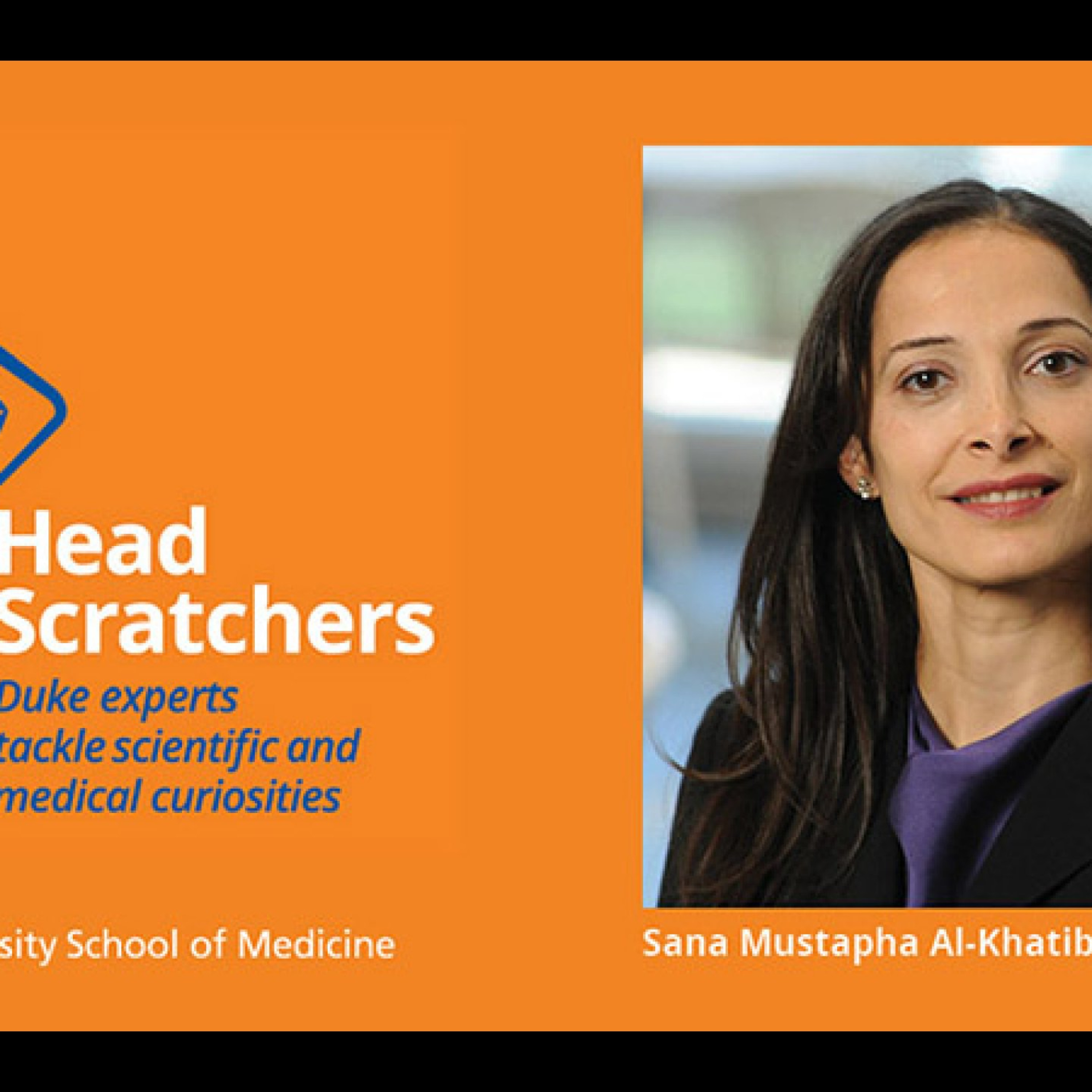What's at the Heart of Sudden Cardiac Death?

Sana Mustapha Al-Khatib, MD, is an expert in sudden cardiac death. She discusses how \u2013 and why\u2014an otherwise healthy young person can die suddenly of sudden cardiac death and the difference between the terms \u201csudden cardiac death\u201d and \u201cheart attack.\u201d Dr. Al-Khatib is a professor of medicine in the Duke University School of Medicine.\n\nTranscript\n \n\nLindsay Key\nWelcome to Headscratchers, a mini-cast from the Duke University School of Medicine. We ask Duke experts to help us understand the questions in science that have scratching our heads. Today we're speaking with Dr. Sana Al-Khatib, an expert in sudden cardiac death. Dr. Al-Khatib, occasionally we hear reports on the news about a young, otherwise healthy person dying of sudden cardiac death. How and why does that happen?\n\nDr. Al-Khatib\nSo why would someone in their 20\u2019s die suddenly? There are different heart conditions that could lead to that outcome, the most common of which is hypertrophic cardiomyopathy. Hypertrophic means enlarged; cardiomyopathy is an abnormal cardiac condition. With hypertrophic cardiomyopathy, the heart muscle itself is thicker than normal, and the tissue itself is not normal, meaning the muscle fibers are not sitting in an organized manner. They actually are in complete disarray. They have a scar tissue. And once you have scar tissue in the heart, that certainly increases someone's risk of going into a life threatening abnormal rhythm that is really fast in the bottom chamber -- and when the bottom chambers go really fast -- we're talking 200, 250, 300 beats per minute -- that can actually stop the heart.\n\nHypertrophic cardiomyopathy itself, it's an inherited condition. People have an abnormal gene, and that's what leads to hypertrophic cardiomyopathy. But it is important to keep in mind that there are other conditions that can lead to thickening of the heart muscle in this age group. We call them cardiac channelopathies. That's when they have abnormal genes, where because of the abnormal channels, their heart goes into life threatening arrhythmias that could go really fast that could stop the heart as well.\n\nAn important thing to note is that sudden cardiac death is different from a heart attack. From talking to a lot of my patients, they seem to confuse the two. A heart attack is when you don't have blood flow, either adequate blood flow or no blood flow at all, to a certain area in the heart, because of a blockage in one of the arteries to the heart muscle. Now, of course, that can also lead to a life threatening rhythm that can lead to sudden cardiac death, but not every sudden cardiac death is due to a heart attack. \n\nSo in this younger age group, people may wonder how can they prevent the risk of sudden cardiac death? How can they be aware that they are at an increased risk to start with. And that's where people really have to pay attention to two main things. Number one is family history of sudden cardiac death. The other thing is symptoms, you know, we talked about sudden cardiac death, that it is a condition that occurs in people who don't have symptoms. We actually have numerous studies now showing that actually some of these people have symptoms, but they just ignore these symptoms. \n\nI don't want to scare people because you know, some of these symptoms can be pretty broad. But, if people are having passing out spells or feeling like they're going to pass out or, you know, palpitations leading to dizziness, lightheadedness, things like that, I think it is important to, to seek medical attention and get that worked up, just to make sure that they're okay. Most patients are going to check out fine, they're going to be reassured that their, their heart is normal. But if people don't do that, then we miss the few people who are at an increased risk for sudden cardiac death.\n\nLindsay Key\nThanks for listening. This podcast was produced by the Duke University School of Medicine. \nVisit us online at headscratchers